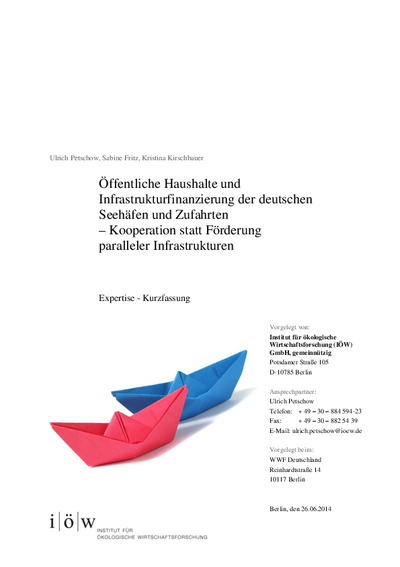Public sector and infrastructure financing of German seaports and waterways – cooperation instead of promoting parallel infrastructures. Expertise Summary
Increasingly relevant topics being discussed in politics and society are the neglect of the transport infrastructure and the disruption of transport processes. The deficits in structural maintenance of the federal waterways were recently shown to be significant due to the temporary closure of the North Sea-Baltic channel. There are also significant deficits in the financing and upkeep of the general transport infrastructure. So, although projects are classified as “urgent” by the Federal Transport Planning Department, financing is not necessarily guaranteed. It should also be pointed out that concepts like “transport financing transport” that try to overcome the limitations of budgetary financing in the transport infrastructure are barely able to come to fruition as far as waterways are concerned. In addition to avoiding transportation especially within the background of climate change, we need to take all modes of transport into consideration and avoid establishing parallel infrastructures. This study uses the example of navigable waterways and ports as a way to show possible savings potential when avoiding the construction of parallel infrastructures.



